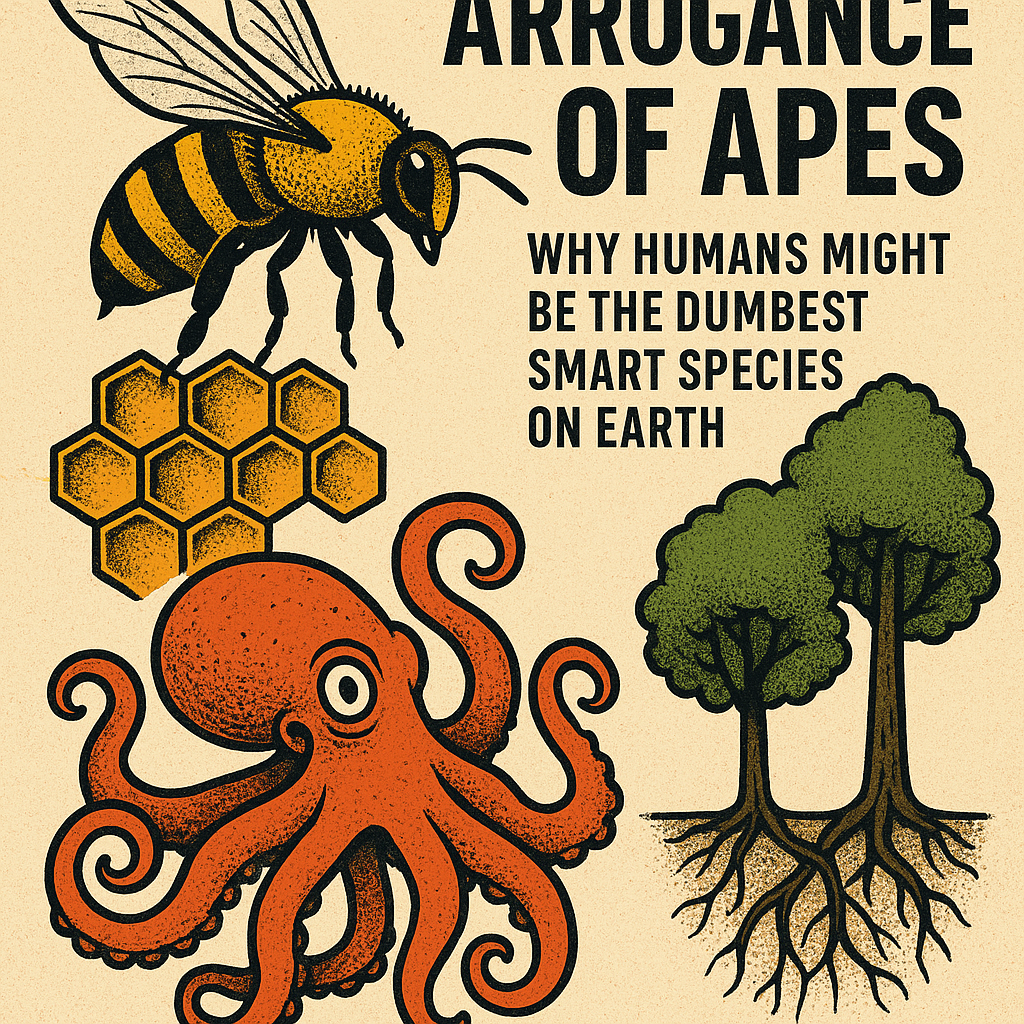The Arrogance of Apes:
By all accounts, humans are supposed to be the pinnacle of intelligence. We build skyscrapers, split atoms, launch satellites, and congratulate ourselves endlessly on Twitter about how clever we are. But every now and then, something happens—a bee, an octopus, a tree—that reminds us: perhaps we’re not as smart as we like to think. In fact, compared to other species, we may just be overhyped primates with delusions of grandeur and a very shaky grip on time, consciousness, and what it means to actually know anything.
Let’s start with bees. These creatures live for just a few weeks, yet in that time, they manage to construct hexagonal cities with structural integrity so impressive that hurricane winds can’t topple them. And how do they do it? Not a single diploma among them. No TED Talks. No overpriced architecture degrees. No “10 Tips to Build the Perfect Hive” YouTube videos. Just pure instinctual genius hardwired into tiny flying bodies. Maybe, just maybe, their experience of time is different—less “calendar and clock” and more “symphony of purpose.”
Then there’s the octopus: that squishy escape artist of the deep with eight (or is it nine?) brains and enough curiosity to open jars, solve puzzles, and mock us from aquarium tanks. We, in our magnanimous human way, say the octopus is “as smart as a dog.” But has anyone asked the octopus what it thinks of us? For all we know, they see humans as the intellectual equivalent of a sluggish tree sloth with a superiority complex. Honestly, not far off.

And what about trees? Oh yes—trees, those “dumb” plants we assumed just stood around doing nothing for centuries. Turns out forests have networks. Not Wi-Fi, but mycelium: vast underground fungal systems that allow trees to communicate, share nutrients, and support struggling neighbors. You read that right—trees have a kind of social safety net. While humans hoard resources and squabble over politics, trees quietly invented the food bank.
So what’s the common thread? Each of these species—bees, octopuses, trees—seems to possess a form of intelligence we don’t fully understand, and perhaps never will. That’s because humans, for all our technological advances, still think intelligence looks like us: fast-talking, self-promoting, tool-using hairless apes. Anything else is either dismissed as “instinct” or downgraded to “cute.”
But what if we’re the anomaly? What if true intelligence doesn’t shout but whispers, doesn’t dominate but collaborates, doesn’t build empires but ecosystems?
Maybe the real question isn’t how smart bees, octopuses, and trees are—but how dumb we’ve become while thinking we’re the only ones who know anything at all.